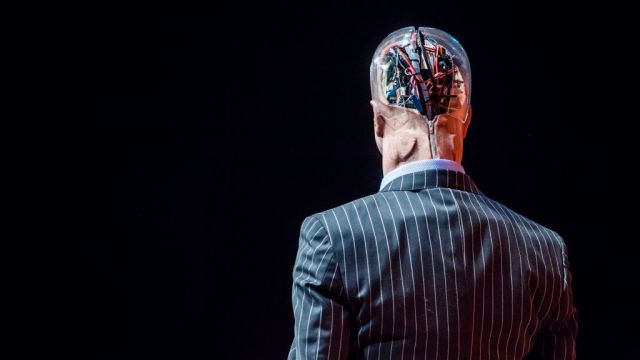5 free books on atheism you can read online

The Secular Web was founded to promote a “naturalistic worldview on the Internet.” Since its 1995 founding, it has served as an important resource for discovering classic works on the philosophy of naturalism, including theism, nontheism, church-state separation, faith and reason, and a host of other topics. There are synopses of books you can purchase, but there is also a wonderful resource section of free books and essays that exist in the public domain. Below are five from the nontheism section.
How to Reform Mankind
Robert Ingersoll, 1896: This American lawyer was known as “The Great Agnostic” for good reason. The son of an abolitionist preacher, Ingersoll grew up on the move, exposed to a wide variety of ideas and people. Ingersoll had no love for religious beliefs, which he understood to be used to persecute others; throughout his life, he championed elements of Humanism. In How to Reform Mankind, Ingersoll writes that humanity’s longstanding beliefs in the supernatural have led us astray, serving as a root cause of oppression and xenophobia. His reform involves many steps, but a pivot away from metaphysics resides at the heart of his argument.
A Message to America
Charles Potter, 1933: The founder of The First Humanist Society of New York, Charles Potter was a biblical adviser to Clarence Darrow during the famous Scopes trial, as well as a theologian and Unitarian minister. The Massachusetts native believed humanism to be the beginning of all religion and advocated for many social causes in its name. In 1938, he founded the Euthanasia Society of America to raise awareness of this issue. In A Message to America, published in the midst of the Great Depression, he states that recovery is not primarily an economic matter and that it will take great faith to lift the masses from social turmoil. It’s not faith in the supernatural, however; Potter makes it clear that humanism is the way forward, which relies on faith in man, which requires “self-reverence, self-knowledge, [and] self-control.”
Why I Left the Ministry and Became an Atheist
G. Vincent Runyon, 1959: A former Methodist minister, G. Vincent Runyon became a universalist, which, while not an atheist principle per se, aims for an inclusive view of humanity that seeks to bridge the gaps between cultures and divinity. In Why I Left the Ministry, Runyon offers his thinking behind his decision to leave God, who he claims he talked to daily, over an intellectual dispute. Though universalism might not promote atheism outright, Runyon certainly did. He chose rationality over superstition, the latter which he claims to be the root of prayer. Runyon was watching people spend money on religion without supporting principles the religion was preaching, causing him to pivot to a broader, inclusive application of spirituality.
The Necessity of Atheism
Percy Shelley, 1813: A major English Romantic poet and husband to Frankenstein author Mary Shelley, the author tragically died just before his 30th birthday in a boating accident. An advocate for nonviolence and vegetarianism, Shelley was radical in many ways, including his dedication to atheism, which ran him into trouble inside of his theologically inclined culture. Shelley’s principles were founded upon the freedom of sentient beings, so it makes sense that his religious ideas, as expressed in The Necessity of Atheism, lean away from metaphysics and toward a grounded and heartfelt approach to relating to other members of society.
Secular Morality: What Is It? An Exposition and a Defense
Charles Watts, 1880: British writer Charles Watts was born into a Methodist family in Bristol. After moving to London to work in a printing press at 16 he befriended a group of secularists, forever changing the course of his life. He helped found the National Secular Society and held various editing roles with secular publications. Secular Morality is his explanation of what a progressive secular philosophy provides for the morals and lives of everyone, borrowing from ideas found in utilitarianism and secularism.
—
Stay in touch with Derek on Facebook and Twitter.





